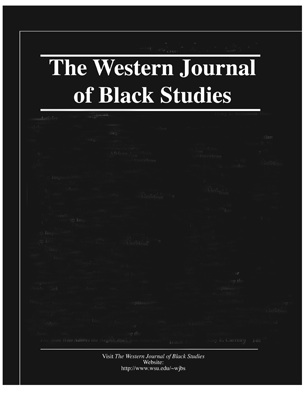Volume 31, Issue 2
Bessie Head’s Maru: Identity, Pathology, and the Construction of Difference
Ikenna Dieke—University of Arizona
Botswana, a country two years shy of independence from Britain, is supposed to offer solace to the now displaced Bessie Head on a self-imposed exile from her native South Africa. The solace is supposed to provide a new beginning for the budding writer. However, Head’s departure in March of 1964 for what would later become her adoptive country was, sadly enough, an ambiguous adventure at best. On the one hand, it offers her the basis for renewed hope in humanity for which she is grateful to her adoptive country. But, on the other hand, it ironically brings her yet again face to face with the old, recalcitrant demons of prejudice, an encounter far more unsettling in its stark horridness of entrance because of who the players are—victims and perpetrators alike—the Batswana themselves among whom she has come to launch her literary career and to predicate that career on charting a new course toward a redemptive world.
pp. 1-10
Associations Among Poverty and Children’s Nutritional Health Status
and Schooling in Ghana
Godwin S. Ashiabi—California State University, East Bay
Using data from the Ghana Living Standards Survey, 1991/92 and 1998/99, and the Ghana Demographic and Health Survey 1993 and 1998, this paper explores how poverty impacts the nutrition, health, and schooling of children in Ghana. The discussions reveal that poverty, nutritional/health status, and schooling are interlinked. Poverty impacts parental ability to provide adequate nutrition and health care. Childhood malnutrition, in turn, compromises child health; with child health further adversely impacting nutritional status resulting in delayed school enrollment, and poor school performance.
pp. 11-21
Eliminating Health Disparities: A Literature Review on the HIV/AIDS Epidemic
Mayowa M. Agbaje-Williams—University of Illinois at Chicago
Blacks are disproportionately affected by the acquired immunodeficiency syndrome (AIDS) epidemic. AIDS intervention programs are efficacious in Whites but not in Blacks thereby widening health disparities. Although commonly cited factors contributing to the epidemic are socioeconomic, other key factors need consideration. These are a lack of cultural competence in intervention programs and a lack of racially diverse health-workforce. These factors are evaluated to provide insights into avenues for limiting health disparities. In conclusion, the development of a racially diverse health-workforce is crucial to reducing racial health disparity. The goal is ultimately to create a medical establishment that represents an “even-playing” field as a way of bypassing the need for cultural competency hence eliminating racial disparities in healthcare.
pp. 22-27
The Brown Decision in Retrospect: Commemoration or Celebration
Charles Jackson—Augusta State University
The 1954 Brown decision has been celebrated by many as the catalyst for the ìgreatî civil rights movement of the 20th century. The Supreme Court should be applauded for the bold step it took in rendering a unanimous decision in overturning the Plessy v. Ferguson decision of 1896. Yet, on numerous subsequent opportunities for social, political and economic progress; the High Court was conspicuously silent. Nevertheless, the Brown decision laid the legal foundation for ending segregated schooling throughout the country and considerable progress can be traced directly to Brown. Despite this fact, many African American scholars lament the lost of black businesses and cultural traditions that accompanied desegregation and the fact that quality desegregated education for African American youth has never been fully achieved.
pp. 28-33
“Their Souls Made Them Whole”
:
Negro Spirituals and Lessons in Healing and Atonement
Rev. Solomon Iyobosa Omo-Osagie II—Baltimore City
Community College
The Negro Spirituals of the nineteenth century sustained slaves’ faith in God. More importantly, they influenced not only black religion and spirituality of the latter years, but religion and spirituality in general. Denominations across racial lines adopted many of the songs in their modes of worship and revealed a spiritual thread that ran through people of all faiths. These songs had healing power and teach great lessons about forgiveness, atonement, repentance, restoration, and social justice. These Spirituals are empowering and teach a lesson to America on Uplift and living up to its ascribed creed as a nation of liberty and justice. This essay examines two important lessons in the reconciliation of past injustices.
pp. 34-41
Book Reviews
Furious Flower: African American Poetry from
the Black Arts Movement to the Present
Editors: Joan V. Gabbin
Reviewer: Takiyah Nur Amin,
Virginia Polytechnic Institute and State University
p. 42
Religion in the Contemporary South: Changes,
Continuities, and Contexts
Editors: Corrie E. Norman and Don S. Armentrout
Reviewer: John Barnhill, Houston, Texas
p. 43

| The WJBS site is normally maintained by Tanya Gonzales. Please feel free to e-mail comments, queries, and suggestions. |
Heading using the h3 tag
Lorem ipsum dolor sit amet, consectetur adipisicing elit, sed do eiusmod tempor incididunt ut labore et dolore magna aliqua. Ut enim ad minim veniam, quis nostrud exercitation ullamco laboris nisi ut aliquip ex ea commodo consequat. Duis aute irure dolor in reprehenderit in voluptate velit esse cillum dolore eu fugiat nulla pariatur. Excepteur sint occaecat cupidatat non proident, sunt in culpa qui officia deserunt mollit anim id est laborum.